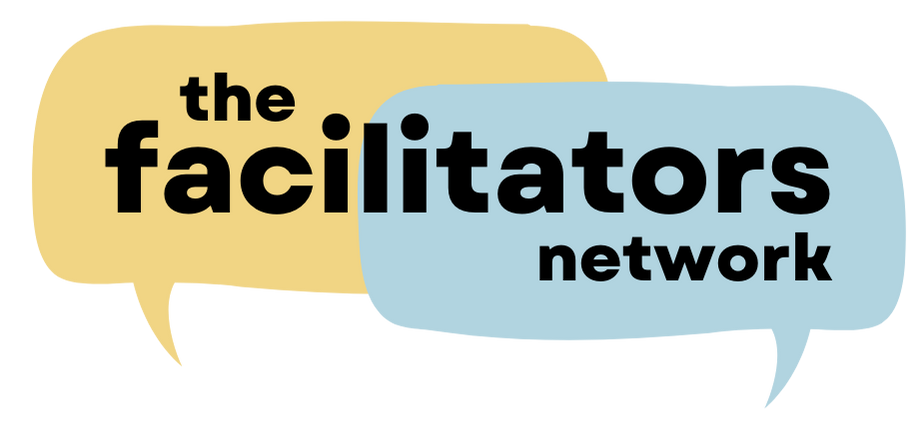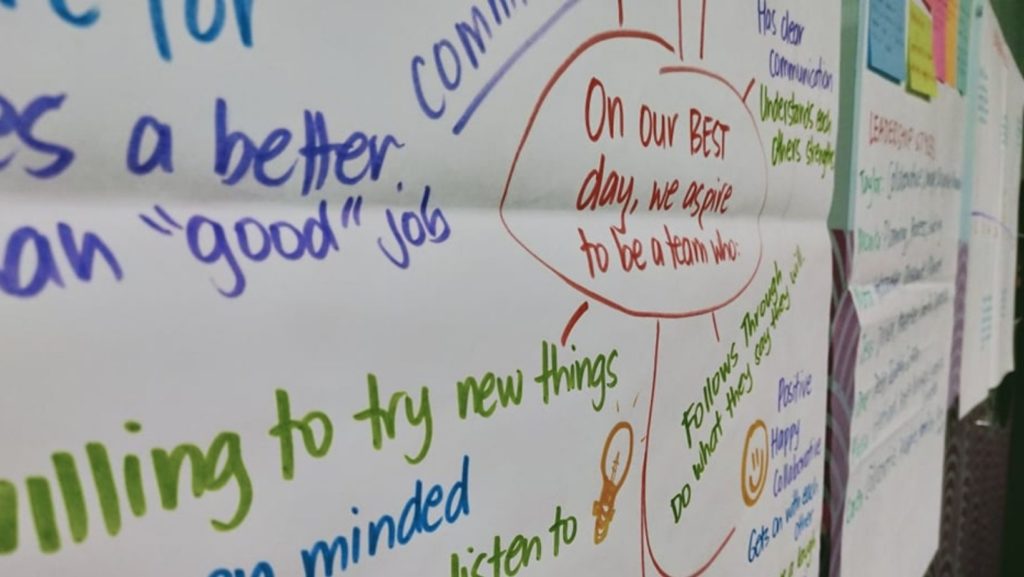The dictionary definition of facilitation is: “To make something easier or possible”. So, when we think about facilitation in the context of meetings or workshops, facilitation is about making it easier or possible for a group of people to discuss a topic and achieve an outcome. What that outcome is, will depend on the purpose of the workshop.
In its purest form, facilitation is all about the process of conversation. It’s the facilitators job to ask the right questions, and provide the right environment, so that a robust and respectful conversation can take place. They act as a conductor to the orchestra and guide the discussion process, but they don’t jump in and play an instrument themselves.
Facilitation is commonly connected to things like Community Engagement Sessions, Strategic Planning and Problem-Solving Jams, but the art of facilitation is used in meetings and workshops wherever open discussion is required.
How is facilitation different to training?
Training and Facilitation are often referred to as two sides of the same coin. Both involve working with groups of people and both require a clear purpose or outcome to be effective. However, there are some clear differences between the two.
Training focusses on bringing new knowledge and skills to a group, so they can learn something new. Often the trainer is an expert in a specific field, and they are primarily responsible for bringing new content for participants to learn. The purpose of the session is for participants to gain new knowledge or expertise.
Facilitation focuses on bringing a process to the group, so participants can explore the knowledge and skills that already exist. This may result in new learning as participants share with each other, but learning is not necessarily the primary purpose of the session. Pure facilitation is usually about helping participants apply their knowledge and skills to a particular issue or challenge.
Facilitation and training exist on a continuum. Good trainers often use facilitation tools and techniques in their training sessions, and facilitators often use training techniques to teach a process or structure. Where you operate on the continuum will depend on the workshop or meeting you are leading, and the outcome you are trying to achieve.
What makes a great facilitator?
If you are new to facilitation or are looking to improve your facilitation skills, it can be helpful to attend some facilitation training and learn alongside other facilitators. Understanding the basic principles of facilitation and having a toolkit of various activities and exercises to draw on, can make all the difference.
Joining The Facilitators Network is a great way to access continuous professional development, while learning alongside other facilitators. We also offer a range of in-person and online workshops focussed on different aspects of facilitation.
Are there different types of facilitation?
There are different types of facilitators, working in different fields and with different processes, but the underlying principles remain the same. Some facilitators work across several disciplines or methodologies, whereas others choose to specialise in a particular area or work with a particular tool.
You might come across facilitators who specialise in things such as design thinking, agile thinking, idea jams, problem solving, constructive evaluation, lean thinking, community engagement, strategic planning, participatory process, open space or something else. At the heart of all of these is facilitation—or in other words, they all use deliberate processes and structures to encourage productive and meaningful conversations.
Facilitation is something that you get better at over time, and almost every facilitator I know, started facilitating by accident. If you are interested in exploring facilitation some more, feel free to get in touch. We love connecting with new and developing facilitators, so that we can learn and grow together.
Kerri Price
Kerri is a professional facilitator with over 20 years experience in facilitation roles. She is the founder of The Facilitators Network and regularly facilitates workshops on Facilitation and Building a Facilitation Business.
Email: kerri@thefacilitatorsnetwork.co.nz

